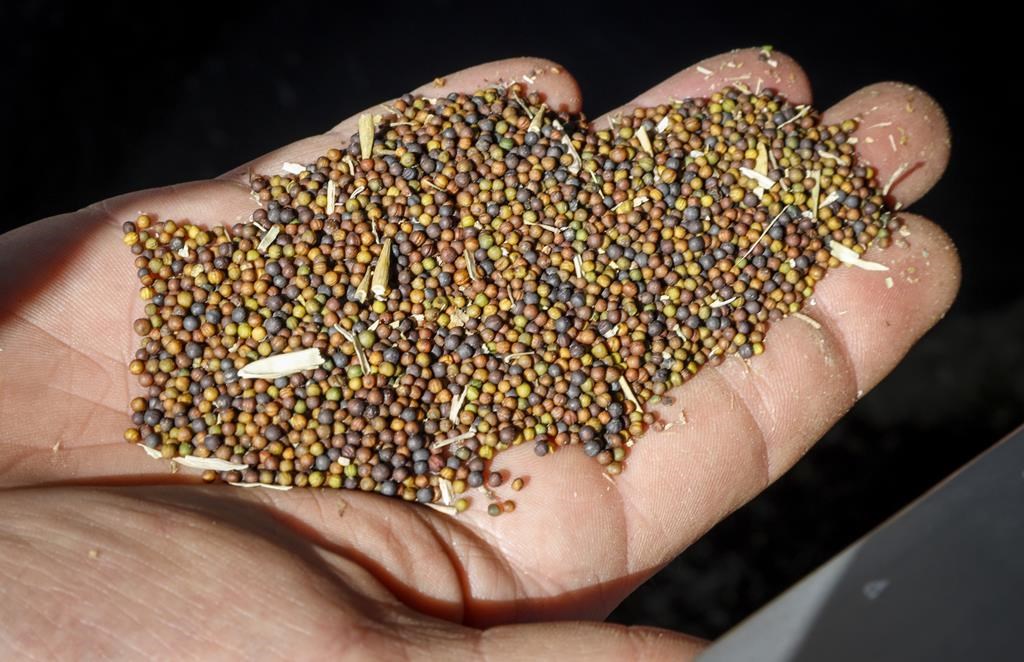The head of Keystone Agricultural Producers (KAP) says more needs to be done to protect Manitoba canola producers from market disruptions during Canada’s ongoing trade dispute with China.

China, which accounts for about 40 per cent of Canada’s exported canola, has barred shipments from two of Canada’s biggest exporters in what is considered retaliation for the detention of Huawei executive Meng Wanzhou.
Bill Campbell, president of KAP, told Global News the uncertainty caused by the trade dispute is top of mind for those meeting at the farm policy organization’s summer advisory meeting this week.
“It seems to have fallen off the public radar, but … as producers we deal with it every day,” he said of the increasing tensions with China.
“It’s reflected in the prices that we’re seeing in the market place – so it’s front and centre.”
Since receiving notice of the move from the Chinese government in March, the federal government has increased the loan limits available to canola farmers, known as the advanced payments plan, and extended the deadline for the insurance available, known as AgriStability.

Get breaking National news
It also boosted the limit of the advance available to canola farmers to $1 million from $400,000.
But those efforts don’t go far enough to help Manitoba producers, said Campbell, who adds new markets for Canadian canola are needed.
“The problem lies in what those prices will be when it comes time to market our crops,” he said.
“If we can’t market canola at a profit, getting a tax deferral or a loan on a losing proposition does not enhance our industry or our future.”
About one-quarter of Canada’s $11 billion in canola exports went to China last year, or $2.7 billion worth, and any prolonged blockage will hurt farmers, the industry and the broader economy.
International Trade Diversification Minister Jim Carr led a canola trade mission to Japan and South Korea in early June to help farmers find new markets for their products.
He also said he would be promoting canola in all of his upcoming visits, including to France.
But to date, Campbell said he hasn’t heard of any new markets opening up.
And he says time is of the essence, with many producers facing a financial deadline of Oct. 31.
“That’s when our property taxes are due, that’s when our land rent agreements are due, that’s when our crop insurance and our hail insurance is due, it’s also a time when our input suppliers require payment,” he said.
“Producers did not ask for this trade problem, this is a federal responsibility that they have undertaken and we are suffering the consequences of it.
“I hope they’re ready to handle the consequences that may transpire.”
According to the federal government’s website, the Canadian canola industry contributes $27 billion to the economy.
RELATED VIDEO: Freeland grew up on canola farm, says Chinese controversy ‘utmost priority’









Comments